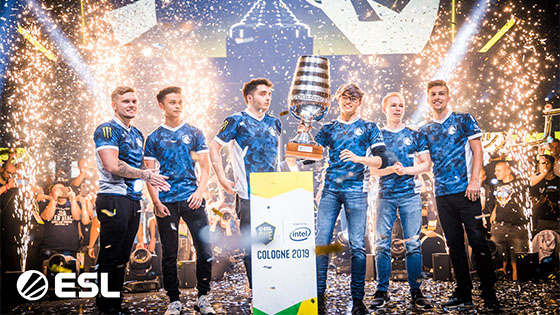
Esports gamers face similar levels of psychological pressure as professional athletes, and are exposed to significant stress factors when competing in top level competitions researchers have revealed, in the first study of its kind.
The research paper entitled ‘Identifying Stressors and Coping Strategies of Elite Esports Competitors’, has been published in the International Journal of Gaming and Computer-Mediated Simulations. Identifying Stressors and Coping Strategies of Elite Esports Competitors, was conducted by Dr Matthew Smith, Senior Lecturer in Sport and Exercise Psychology at the University of Winchester alongside former colleagues from the University of Chichester.
The study examined the psychological challenges encountered by elite esports professionals when competing in major contests, with research primarily conducted at the University of Chichester. Researchers interviewed high-ranking players who compete in the increasingly popular first-person shooter game Counter-Strike: Global Offensive.
Researchers found that esports players faced 51 different stress factors – including communication problems and concerns with competing in front of live audiences – mirroring the mental conditions experienced by pro athletes, including footballers and rugby stars in high-profile tournaments.
Dr Matthew Smith, first author with particular research interests in leadership and group dynamics, said: “Esports is developing rapidly, but little is known about the psychology underpinning elite performance. We have found gamers face a wide range of stressors, when competing in top level competitions has become a multimillion-pound business attracting audiences worldwide, but there is little research into the psychological factors that influence players.
“We have discovered that gamers are exposed to significant stress when competing in top-flight contests. We hope that identifying these stressors will create awareness that can lead to esports players developing effective coping strategies that will lead to enhanced performance when competing.”
Poor communication between teammates was identified as a key stressor among players when exposed to pressured environments. To manage the situation, said the research team, players either became overly aggressive to one another or attempted to avoid communication altogether, which negatively impacted their performance.
Researchers also recommended that top esports players are given psychological training to learn practical coping techniques to help them more effectively prepare for the pressures of competing at elite levels.
In 2018 nearly 600 major esports events were held, watched by over 380 million people worldwide. The majority of these people were from North America, China, and South Korea – though according to a report from research company Newzoo, UK gamers spent almost £3.3 billion on videogames in 2018. This reflects the growing popularity of competitive gaming, and reveals a gap in our knowledge of the psychological impacts facing esports gamers. Thankfully, the targeted research conducted in Identifying Stressors and Coping Strategies of Elite Esports Competitors has helped identify the need for supporting individuals engaged in esports, and made the industry more aware of risk factors facing their players.
Rob Black, the Chief Operating Officer at ESL UK, the world’s leading esports company, said: "As an industry we've known for a long time that stressors on top level players can negatively affect their performance.
“This study proves this and reinforces what we have been saying for years. Further developments are needed in this area, and that will be key in ensuring the number of professional players continues to grow worldwide.”
Identifying Stressors and Coping Strategies of Elite Esports Competitors is published in the International Journal of Gaming and Computer-Mediated Simulations (Volume 11, Issue 2, 2019). It is available online at: DOI: 10.4018/IJGCMS.2019040102. The authors are: Dr Matthew Smith, Senior Lecturer in Sport and Exercise Psychology at the University of Winchester; Dr Phil Birch, Senior Lecturer in Sport and Exercise Psychology at the University of Chichester; and Dr Dave Bright, Senior Lecturer in Sports Coaching at the University of Chichester.
Press Office | +44 (0)1962 827678 | press@winchester.ac.uk | www.twitter.com/_UoWNews
Back to media centre